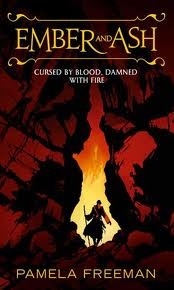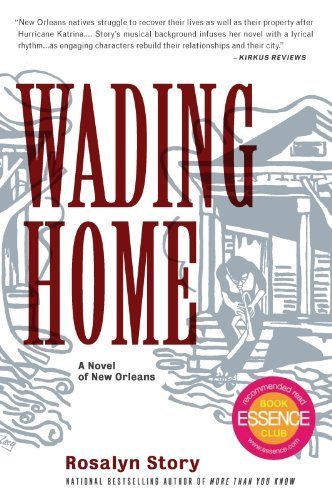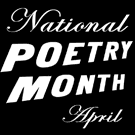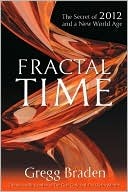Kae Cheatham's Blog: Whoa! Another Author?, page 14
April 20, 2011
Ember and Ash – Review

I received Ember and Ash as a publisher's ARC through netgalley. I chose Pamela Freeman's Ember and Ash because of the world-building elements suggested in the overview. I was not cheated here at all and was introduced to a rich work with eleven domains, each with its own environmental attributes as well as spiritual beliefs. But each Domain is under the influence of the Powers--main elements of nature--even when the people don't recognize this.
The story develops when the Power, Fire, suddenly denies fire to several Domains, beginning with the Last Dominion, where Ember and her family reside. To have the all-important element returned, Ember must travel to Fire Mountain to placate Fire. Her entourage includes Ash and Cedar, brothers who become vital to a successful quest. Ember refers to them as her cousins, but she isn't truly blood related.
Especially dominant are the characters of Ember and her parents, Martine and Arvid. Ember starts as a privileged girl who gains maturity as the story progresses. This transformation influences her decision-making in a well paced logical way. Her mother Martine is from an old line of seers; her strengths and that of her lineage come through well. Arvid, Ember's father, is conflicted by his position as Warlord of Last Domain and his love for his wife, who it appears has been deceitful with him. The emotional interactions between the two, and the events that caused them, are some of the most powerful in the book.
Many of the early chapters that detail the travels of Ember's group are also used to elucidate the beliefs and magic associated with the various regions of this World: The Great Forest, Starkling, and Ice King's Country are all vividly presented. (Although a map is provided, the ARC version didn't mark all the places mentioned in the book, such as The Great Forest and The Deep--the site of the book's first chapter).
The lifestyles of the various places are well defined, but the attempt to explain the interrelated histories of each gets a bit muddled. Several chapters are told from the view points of women who travel throughout Last Domain to prepare people for the hard times ahead without fire. While these were interesting, I felt distracted from the events involving the main protagonists. By the end of the book, I felt Freeman included too much information—some of which prompted my puzzlement about the story's ending.
I also found the official overview to be quite misleading. Ember doesn't strike out for retribution, but is following the orders of Fire—orders necessary to restore fire to her people. Fire's reasons become convoluted from Chapter 2 to the end, where a new elemental power is introduced; that's one of the puzzlements I had at with the ending.
But overall, Ember and Ash is a story of quest and transformation with lyrical writing and strong characters. It provides an interesting trip into an intriguing and well-thought-out world.
April 14, 2011
National Poetry Month #3

Today is a special day in National Poetry Month. It's Put-a-poem-in-your-pocket Day. Find a favorite to share, or reflect on. Here's my offering. You're welcome to carry it, if you don't have another.
Titles© Kae Cheatham
Give images to things by sound,
And I am cornered by mine.
First Daughter, then Sister
and now I'm married--
have become a Mrs.
a Wife, Aunt,
Mother. Mom. Ma.
Ah, I don't believe Shakespeare's prattling
'What is in a name?'
Would I be washing these sweaty clothes
If I were Queen?
Leave a link to your pocket poem, or add it to the comments.
April 13, 2011
National Library Week

April 10 - 16 is National Library Week, first instituted in 1958. I'm a big supporter of my Public Library, but this week my only contribution to them is an overdue fine. Not what I intended, but I've been captured by a massive head cold that has kept me in the slow lane--the VERY slow lane. Recovery is on the horizon, I know, and I hope to get to the library before the week is out.
Wading Home - Review

Rosalyn Story's novel Wading Home is a story of recovery. Not so much New Orleans recovering from the devastation of Katrina, but of people recovering from the disaster and from personal despair. Focus is not on New Orleans and politics and rescue/repair efforts, but on one family—the Fortiers. Their Louisiana heritage began in days of slavery, and is studded with interesting and not-so-uncommon black/white history.
Patriarch Simon Fortier, a renown New Orleans chef, now retired, lives in New Orleans in a house built by is father. Simon plans to see out the storm. The Fortier family also owns Silver Creek, rich delta land passed down through generations and dating back to the mid-nineteenth century. Amidst the upheaval aftermath of Katrina, ownership of this land seems in jeopardy. Simon's only child, Julian, has never been interested in the land. An internationally famous jazz trumpeter, he is in Japan when he learns of Katrina's slam into his hometown. He has recovery issues of his own: returning to his career after an accident; reestablishing his relationship with a special woman and with his father, with whom he has been slightly estranged.
All of these issues are presented in masterfully written prose—language that sets the reader in the physical and emotional scenes. This description, as Julian contemplates his options, he recalls better days when the river was bright with lights and activity. Story writes: "But tonight the only light on the river came from a pale gibbous moon casting oyster-colored shimmers across the rippled surface of the water. Downriver, a lone barge floated without sound."
Later is a description of a brass band funeral march: "No one knew exactly when the tradition got started—the funeral cadence, the somber march in slow, studied steps, the swell of trumpets and trombones wailing a mournful cry before escorting the departed soul to a jubilant release—but of the music's source there was no doubt. Born on a breeze that swept across the African plains, it winged west to the cotton fields of America and seated itself in the soul of the south..."
The picture of ravaged New Orleans is given through conversation, as Julian's friends express their despair, concerns and even anger. Scenes also show the efforts within tight-knit communities to help each other when it seems no one else cares.
I admit, at times the story was a bit drawn out, with elements often hinted but never revealed until later in the book. The deft prose kept me reading, even when I had determined the solution to one continual mystery—how to save Silver Creek.
A very enjoyable read both for the writing and the information presented.
April 9, 2011
National Poetry Month #2

Poetry comes in many forms, some of which have been around for centuries. The sonnet dates back to 13th century Italy. It is composed of fourteen lines, typically with fourteen syllables per line, and a formal rhyme scheme.
Japanese haiku: evolved from the 16th century and most often deals with the beauties of nature it is composed of seventeen syllables in three lines (5, 7, 5); this form and tanka (five lines with thirty-one syllables) were favorites of the ruling courts.
Other poetry styles are newer. Free Verse: is the English for vers libre; the term was coined by French Symbolist poets in the late-19th century; this poetry does not rhyme, and has no regular rhythm.
Here's my newest celebration poem—a haiku.
April © Kae CheathamGreen clings to aspen
like mist to mountain valleys.
Promises abound.
April 8, 2011
Fractal Time - Review

Gregg Braden's Fractal Time: The Secret of 2012 and a New World Age is what I consider a quasi science/self-help book that investigates the possible ramifications of the "2012 world's end" predictions. The main precept is, Does the past hold the blueprint for the future? Braden reasserts many times that the 2012 date is does not predict an Armageddon. He presents cosmologic data that pretty much confirms that earth is a part of fractal time—a moving piece in cycles that have been going since the universe was formed. December 2012 is when the earth will reach end of an oblique circling of the sun that has encompassed 250 centuries. December 2012 also marks when the earth begins its long trip anew. This cosmic trek has been noted in several ancient records from several continents, most notably the 3,000 year old Mesoamerican calendar. The first part of the book details information about how the 2012 date was ascertained from these ancient, often stone-tablet, tomes.
Braden, a former computer systems designer, also presents the theory of the Time Code, and how the small cycles within the big universal cycle can be calculated. These small cycles affect the environment, world politics, and even a single person's life. This theory is nicely laid out with formulae and several examples; an appendix at book's end has even more step by step detail.
The science part was interesting, and I've perused several of the online sites listed in the references for more information. The "calculate your cycle" part didn't hold my interest as much. I find it more a remarkable mystery that the ancient astronomers and astrologers were able to perceive this movement of the earth—a vast cyclical trek that modern scientists, with computers, space telescopes, and so on, are just now comprehending. Regarding the future, I'm sort of a "whatever" type person, and the idea of trying to determine the not-yet-arrived-at good or bad features of this life's cycle, doesn't appeal. But for those interested, Braden's book has some unique and well presented ideas.
April 7, 2011
Change of Season
I'm participating in the Book reading challenge at Goodreads. I set a goal for reading fifty-one books this year (I read only thirty or so last year). When I recorded my last finished read (#20) a challenge message popped up suggesting I should increase my goal. But I know better.
Now, with the change of season, I know I won't have as much time for reading. Not only will home and land maintenance demand several hours each week (I'm already seeing noxious weed sprouts in my pastures--time to get out the sprayer), but my activities change. My first art show is this weekend; regional events will see me in attendance with camera in hand for photo ops; I'm even planning a vacation!
Until mid October, reading will slid a bit on my priority's list; I know not to change the goal.
April 1, 2011
National Poetry Month #1

April is National (U.S.) Poetry Month
This was inaugurated by the Academy of American Poets in 1996. Check with your schools and libraries to see what events are happening.
In celebration, I will post a few of my poems during the month.
Here's my first contribution, published a few years ago in West Wind Review (before they were online):
Gordon© Kae Cheatham
Gordon
speaks a bit of Japanese and likes
to practice on the petite, obied serving girls at
the Kobi where we met. They giggle,
and bob in their kimonos like toothpick ducks
on a deli counter. Bystanders are amazed and I wonder
if he'd prefer me in wide sleeves of yellow silk
enfolding pale arms as I bow and beam
and grin at his ohayo gozai-masu.
But I'm not pale and I stand 5'8", filling up
a single bed. With him
we have gone to queen size, and last spring
(after collecting schools of parasols from our drinks)
even that was too small; we were
hot as a sukiyaki grill; we were
fiery like the first taste of Sake.
Yet even hot pots cool down and this season
his arms and legs clutch the bedside,
leaving the center
(with brush-stroked bamboo and fronds
on the rumpled percale) as cool as a Mikasa
platter. I drink plum wine and buy him
drawings of yin and yang. I make sushi
for dinner, but when he gets home the mound
of rice is cold. He smells foreign,
like grape leaves and lamb. I attempt Nippon,
still hopeful. Ikaga desu ka?
Kala efkaristo, he responds in flawless
Greek.
March 30, 2011
Women's History Month #4

I can't believe this month is nearly over. I had intended to post a women's history month bit at least two or three times each week. But real life got in the way and inundated me with real work (that pays the bills) and chores, and kept me from this online playground of blogs and forums. Here are a few pieces of my good intentions, starting with the chronologically-most-distant.
Mary Shelley (1797 - 1851) is credited by several sources as being the first speculative fiction writer. Since I write SF, I am compelled to mention her. The Prometheus Man (a.k.a. Frankenstein) was published in 1818. Talk about endearing global interest! Not bad. Her other titles also had strong elements of Gothic SF.
Then there's Mary Baker G. Eddy (1821-1910), founder of the Christian Scientist Church. I can't think of another woman who held a belief, put it to action and founded a church; she's in league with Martin Luther and John Smith. Her church has already endured for more than 120 years, complete with an internationally recognized newspaper, The Christian Science Monitor.
I have a personal interest here. My grandmother, born in the 1890s and who raised me through early years, was Christian Scientist—raised by CS parents—which makes my great-grands some of the first folks through the doors of the new church. I have never been involved in the religion, but recognize some of my feelings, particularly about doctors and medicine, probably stemmed from this background.
Willa Cather (1873 – 1947) is another woman of history for whom I have strong feelings. Many of her stories and novels are set in the American West and Southwest, and have a feature staunch respect for the land and the people who worked it. The Willa Awards, given annually by the professional organization, Women Writing the West honors her.
March 28, 2011
BS List

Ah, the New Your Times Book Review page. Would I pay to read it? Ha! NOT. I've always considered their "Best Seller" list the B*** S*** list. This HP article articulates my feelings about the NYT Book review.
At my Public Library, when I see an interesting title and then notice it has one of the NYT review list stickers or blurb on it, I slide it back in place and move on to something else. The NYT, just as Madison Avenue and network TV have done, works too hard at trying to sculpt the thinking of Americans. Actually, they're scalping it.
Whoa! Another Author?
- Kae Cheatham's profile
- 24 followers



